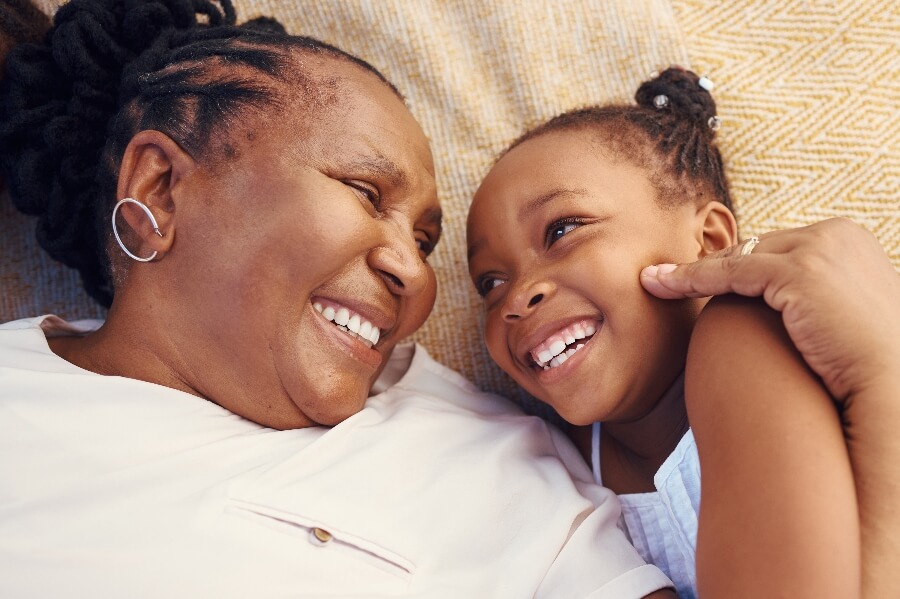I was sitting in my Manhattan apartment recently with eight of my pals when the subject of friendship came up. Specifically, why some close female friendships last through thick and thin, ups and downs, sickness and health, trauma and heartache, while others don’t make it past the first bump in the road.
A key to long-lasting friendships is the ability to tolerate difficult conversations.
Some of the women are new friends; others I’ve known for half a lifetime or more. Belinda, with whom I’ve been close for twenty-five years, gently put down her tea. On the surface, she and I are unlikely friends. She’s black, a religious Christian, and a businesswoman. I’m white, a secular Jew, and a writer. She was a teenager when she had the first of her three children; I waited until middle age to adopt a baby girl from Guatemala. Yet we never end a phone call without saying, “I love you.”
Belinda’s voice was emphatic as she turned to me: “Well, our friendship lasts because we don’t shy away from talking about race.” She explained to the group, “Most of my girlfriends are black. White women are scared to tackle the race stuff with me. But Janice and I figured out early on that we needed to forge ahead—even when it’s uncomfortable.”
I lay my hand on hers, feeling grateful for her words.
Read More: Having Good Girlfriends at Midlife Is Good Medicine—Literally
The Ultimate Female Friendships Test
“By the way,” I announced, “Here’s my ultimate Friendship Test. If when we grow old, I land in a nursing home before you do, will you visit me faithfully?” I smiled along with everyone else; we all knew I’m only half joking. “Oh, and there’s a Part Two. Will you request the room next to mine when your time comes?” I assured them that in my fantasies, our nursing home resembles the glamorous Plaza Hotel and the chef is five star.
“If when we grow old, I land in a nursing home before you do, will you visit me faithfully?”
Nursing homes aside, a key to long-lasting friendships, says psychotherapist and hypnotherapist Judy Kurzer, is the ability to tolerate difficult conversations. “The other person has to be so important to you,” she says, “and you must respect her so much—that you’re willing to stretch and take a risk.”
After the tea, I called my friend Stephanie Hart, a professor at The Fashion Institute of Technology. I asked her how she and her childhood BFF, of whom she speaks often, have remained so close despite geographic distance and political differences. She chalked it up to having grown up together in boarding school, both with divorced parents. “We became each other’s family. Through the years, we’ve had terrible fights, including name-calling. But in the end, we accept and protect each other.”
The Female Friendships That Don’t Last

But not all friendships last. And when they end, the experience can be more painful than romantic breakups, according to author, therapist, and relationship expert Sherry Amatenstein. “It’s not expected,” she suggests. “Women may not expect their friendships to require so much work. They just think it will work out, but you have to put the work in.”
I think about my own friendships that have ended. Raven-haired Cathy, for instance, a nurse whom I met when we were both vacationing in Mexico. From similar New York City backgrounds, she and I had political views and a mischievous sense of humor in common. Also, we were both child free.
But when my husband and I decided to become parents in our 40s and adopted our daughter, Cathy grew fiercely critical of me, targeting my clothes, hairstyle, and cooking, as well as my marriage and parenting skills. It was a particularly vulnerable time for me, and I felt wounded. When I finally confronted her, she surprised me by saying, “You’re right, I’ve been a bitch. It’s because seeing you with a child makes me feel left out. But I promise not to be so critical.”
“Being a new parent takes most of my energy,” I admitted. “But I promise not to leave you out.”
After that, I made sure to see her often. The criticisms didn’t stop, however. Not even after another heartfelt and teary talk six months later. So I sent a goodbye email, to which she never replied. My daughter is now 15, and I’ve come to accept not having Cathy in my life.
With time, I’ve also come to see that I too had contributed to our friendship’s demise, something I couldn’t acknowledge back then. The truth was that I didn’t find Cathy as engaging as my new mom friends, with whose kids my daughter could play, and with whom I could discuss the joys and challenges of parenting. Cathy must have picked up on that.
Empathy and Other Essential Ingredients
Another thing I’ve learned over time is that friends don’t need to be in constant contact. My brand-new friend Rose, a real estate agent, accepts the ebb and flow of relationships. “There may be periods when a friendship doesn’t burn hot,” Rose says. “I talk to my college roommate every week. But we didn’t do that when her kids were younger.”
“Empathy is crucial,” says Los Angeles-based playwright Lucy Wang, whom I met decades ago at a retreat in New England. She and I go long periods without seeing each other or speaking by phone. “Sometimes you fall out of touch with friends. Maybe you’re battling illness. Or juggling five part-time gigs trying to make ends meet. Or caring for elderly parents.”
I sent a goodbye email, to which she never replied.
When—as is inevitable over time—illness enters the picture, it can both deepen and fray friendships. At such times, the ability to communicate is essential, according to Mindy Greenstein, a psychologist and psycho-oncologist. “Sometimes, friends feel pressure to ‘say the right thing.’ But what’s more important is how well we listen. Sometimes, a sick friend might want advice, other times a pep talk, and still other times, a chance to admit her fears. When the person who’s ill can tell her friend what she needs—to help her be helpful—it’s a win-win for everyone.”
I think back to my tea party and the pure happiness I felt sitting with friends and talking, talking, talking until long after the sun had set. Author Victoria Zackheim says in her introduction to the 2015 anthology, Dumped: Stories of Women Unfriending Women, “When it [friendship] works, when the connection is true and safe and heartfelt, it is magic.”
And how wonderful it is to continue to create that magic with my friends. I hope that as the years go by we all remain close to one another, one day dining happily together on our haute cuisine in the oh-so-elegant “Plaza Hotel Nursing Home.”
Read More: To Dump or Not: When a Friendship Is More Pain Than Pleasure
A version of this article was originally published in January 2018.





















0 Comments